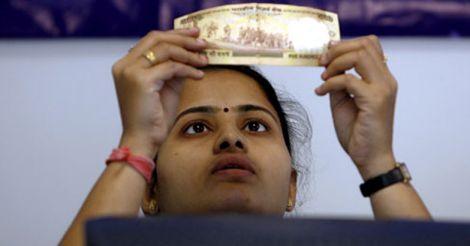The central government's proposal to reduce interest on all small-savings scheme is an extreme step. Perhaps the argument of the finance minister that interest rates must come down for better economic growth might have academic backing and logic. However, such excuses might make no sense to those who have invested their life’s savings in such schemes.
Some might argue that since inflation is low, a drop in interest rate is acceptable. However, who can say for sure that inflation would not rise once the price of oil shoots up? Any small variation in costs can be traumatic for senior citizens who live within a tight budget.
In developing nations, savings is as important as consumption. This is because domestic savings influence industrial production. The banking sector in our nation has always complained about higher interest rates being offered to small-savings schemes. They had always cited this excuse when cornered about not passing interest rate cuts of the central bank to consumers.
There is a striking contrast in the focus of small savings in villages and cities. While in the cities, depositors in small scale schemes are mostly middle class people. In the villages, such consumers are first-generation savers. Therefore it is imperative that they are encouraged to save.
Prof. Angus Deaton, who won the Nobel Prize for Economics last year, has made a very notable observation on saving habits in emerging nations. The savings of the rural folks might not help them to accrue much wealth. However, their savings help them to contain uncertainties that they face in their lives. While the uncertainties such as drought, floods and so on encourage the business of lenders, the fluctuations in their savings help to balance irregularities in consumption.
The spread of the visual media has narrowed the boundaries between cities and villages thereby helping the spread of consumerism. The last two droughts have raised concerns that agriculture is no more profitable. Naturally, exodus to cities has increased. It is in this scenario that the finance minister has presented a budget that seeks to support rural areas. PM Modi is planning to double the income of the rural folk in the next five years. Would it not be nice if the savings of the rural folk also increased with increase in income?
With the new move of the finance minister, the job of Mahila Pradhan agents, who promote small savings, has become more difficult. One can only hope that they are able to maintain their jobs.
While it is a welcome move to reduce interest rates in the country in a staggered manner, the finance minister could have exempted some services meant for the rural poor. For example, savings in post offices could have been exempted. One hopes the finance minister would come up with alternate arrangements to attenuate the impact of his recent rate-cutting move.
(The author is a faculty at the Gulati Institute of Finance and Taxation, Thiruvananthapuram)

























 Representative image
Representative image